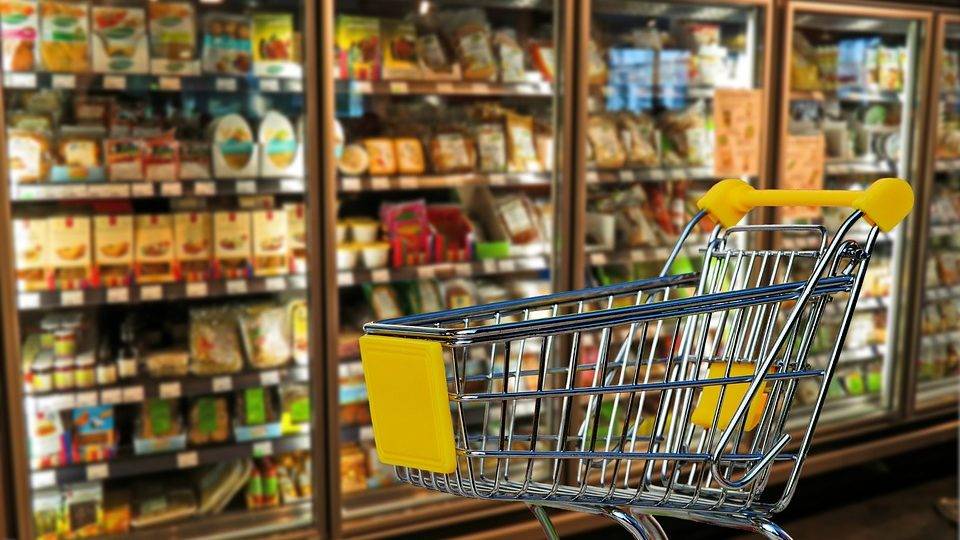RIO DE JANEIRO, BRAZIL – The quarantine imposed by the Coronavirus pandemic has changed Brazilians’ consumer habits. While some products have increased sales, others have lost ground.

The market research consultancy Euromonitor analyzed consumer behavior in recent weeks to understand this movement and outline scenarios for the coming months.
“Some groups have grown 200 percent in the first weeks of isolation, but we know that these effects are hardly sustained throughout the year. Some of them may end the year at zero to zero. Our focus is to understand trends that have an annual impact,” says Angelica Salado, research manager at Euromonitor.
The food sector was one that felt the impact of the social isolation dictated by the coronavirus. With much of the Brazilian population quarantined and restaurants closed, people have stocked up their pantries and are cooking more. The supermarket rush, however, caused some excesses. “In the first weeks there was such a rush that some products were bought to the extent that they will be consumed throughout the year,” says Salado.
This is the case of items considered of indulgence. These products were in great demand, but may feel a reduction now, since families are more apprehensive about the future of the economy, says the manager of Euromonitor. On the other hand, basic consumer products like rice, pasta, sauces and canned products should grow more consistently throughout the year, due to the higher number of meals cooked at home.
A major point in the food segment is that brands manage to have their products reach supermarket shelves. “At the moment, logistics efficiency is an attribute that will determine who wins and who loses market share,” Salado says.
The restrictions imposed by the coronavirus have made it difficult for several products to reach the shelves. They end up being replaced by retail chains’ own brands or others that are available. “In this context, the brand that is most efficient in preventing shortages will gain ground regardless of category,” she says.
According to Euromonitor’s calculations, the lightest scenario for the Brazilian economy in the coming months is similar to the one seen in the country in 2016, the height of the economic crisis from which the country was beginning to emerge before the pandemic. Thus, the consultancy’s projection is for consolidation of more moderate purchasing behavior, with less room for redundant items. “We’re going to establish a new purchasing standard guided by uncertainty,” Salado says.
Another category analyzed by the consultancy is that of products to boost the immune system. Items such as vitamin C, multivitamins and natural products such as propolis were in high demand, were sold out in some outlets, and had their price increased.
“Since the confirmation of the first case in February, prices have risen in the country. Vitamin C, for instance, recorded an increased sales rate of almost 200 percent from February to March 2020,” says the consultancy’s report.
However, the consultancy points out that, with the heated demand, there may be a lack of raw material to sustain the production and supply of these items in the medium term. It is also impossible to determine whether this will be reflected in sustained purchasing behavior in the coming months.
“The habit of worrying about one’s own health will continue, but it is too early to say whether this will lead to a change in purchasing patterns. Today, these are not essential products for the majority of the population,” Salado says.
In the hygiene sector, items such as soaps, in particular those with antibacterial agents, gain ground. “These items should perform better this year, because new needs have been generated. People will wash their hands more,” Salado says. According to the Euromonitor report, liquid soap saw a price increase of 20 percent between February and March due to high demand.
Cleaning products are also expected to experience an increase in sales. Toilet paper, on the other hand, which was out of stock in the first weeks of quarantine, could reach the end of the year with normalized sales, since sales tended to drop after the first weeks’ euphoria.
Make-up and perfume products lose ground, as do alcoholic beverages and clothing: “As a rule, consumer categories in a social context should experience a negative impact,” Salado says. The focus for companies that rely on these products is to adapt.
“Companies should do an exercise of reallocating productive capacity to categories considered essential at this time. Those that can adapt production lines should gain market share,” she says.
According to Salado, de-stocking through promotions is not a good strategy, but rather to understand that we are experiencing a period of different consumer habits. The moment also tests the digital strategy of companies, with the increase of online shopping.
In the entertainment sector, an important trend identified by the consultancy was the increase in video game sales. “This sector was gaining ground even among adults. Now we see a trend of buying consoles, in anticipation of the expected Black Friday purchases”, says Salado.
Other items such as personal computers and kitchen appliances are also on the rise, due to the home work adopted by many professionals, and the fact that families are cooking more.
Source: Exame

